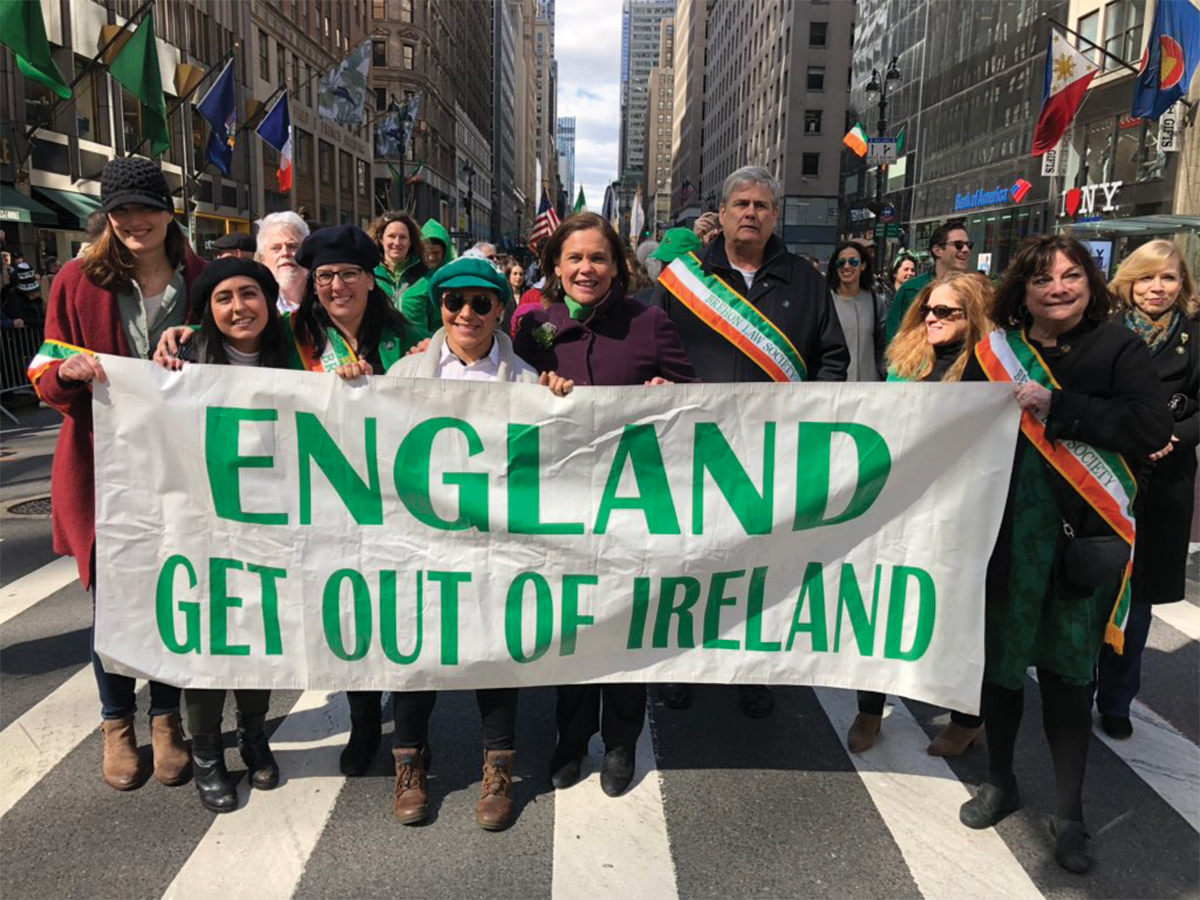
Ireland has had a long and bloody history centered around its struggle to reunite the North and south. Presently, the northern six counties that make up Northern Ireland are part of the United Kingdom (U.K.) with the remaining 26 counties comprising the independent Republic of Ireland. This divide has long been a point of contention in the north as Irish nationalist groups like the Provisional IRA fought a bloody campaign against northern Protestant unionists and the British in order to have the north rejoined with the south.
This violent period was only brought to an end when both sides came together and signed the Good Friday Agreement. The groundbreaking agreement guaranteed both Irish and British citizenship to the Northern Irish and removed all barriers along the border. Most importantly, however, the agreement guaranteed that if the Northern Irish ever wished to rejoin the Republic, the British would be duty bound to call for a referendum. The Good Friday Agreement has long held the peace between north and south, pushing any talks about reunification to the side. However, recent events surrounding Brexit and the Irish election have made the possibility of a unified Ireland no longer a simple republican fantasy but a practical possibility.
As many are likely aware, the U.K. voted to leave the European Union (EU) in 2016 and have only recently managed to secure a withdrawal agreement. Fewer are aware of the impact this decision has had on Ireland and the conflict it could possibly reignite. In 2016, 51.9% of British citizens voted to leave the EU, however, only 44.2% of Northern Ireland voted to leave. These results and the U.K.’s subsequent departure from the EU proves how little Parliament cares for the plights of the Irish. Furthermore, the shortsightedness of Brexit has only brought more uncertainty to the island as concerns over the Irish border have reignited. Though the recent withdrawal agreement was established in hopes of solving that issue, it creates more problems than the British may fully realize.
The withdrawal agreement places a border in the Irish Sea separating Northern Ireland from the rest of the U.K. This move places Northern Ireland in an economic and political limbo where they have left the EU on paper but are still dependent on EU regulations and remain a part of the customs union. This compromise was done in order to avoid a hard border that would separate Northern Ireland from the Republic of Ireland, which is still a member of the EU, but it deepens a growing divide between the people of Northern Ireland and its government in London. As Brexit becomes fully realized, the Northern Irish are going to grow more reliant on the government in Dublin instead of the government in London. As a result, Northern Ireland’s economy will become far more integrated with the Republic than with the rest of the U.K., making reunification seem even more necessary.
With regards to the Republic of Ireland, the recent parliamentary election results have indicated a growing desire to unite the north and south. The election saw the two established parties that have governed Ireland since its independence unseated by Sinn Fein, the political wing of the IRA. Though no party has a clear majority and none have been able to form a government thus far, Sinn Fein’s success cannot be overstated. Their success has normalized the party among the Irish electorate and reinvigorated public sentiment toward unity. Previously, unity was a general desire but hardly spoken about in order to avoid reigniting sectarian divides.With Sinn Fein’s success, regardless of their ability to form a government, reunification is back on the agenda going forward. Mary Lou McDonald, the party’s leader, has already told London that they “need to get ready for unification,” making her party’s desire for a border poll even clearer.
The damaging effects of Brexit on Anglo-Irish relations coupled with Sinn Fein’s monumental success in the recent Irish elections are key indicators of growing interest in Irish unity. As Parliament’s neglect toward Northern Ireland becomes more apparent, more of the country will become less attached to British rule. Brexit began something irreversible in 2016 as Parliament’s utter disregard for the welfare of the Irish has set into motion the genuine possibility of a single Irish state.
Continued British neglect and ignorance of Irish concerns have seriously strained its relationship with Northern Ireland, perhaps even fatally. As Sinn Fein’s demands for a border poll grow deafening and the full economic effects of Brexit become visible, a reunification referendum in the near future is inevitable.








